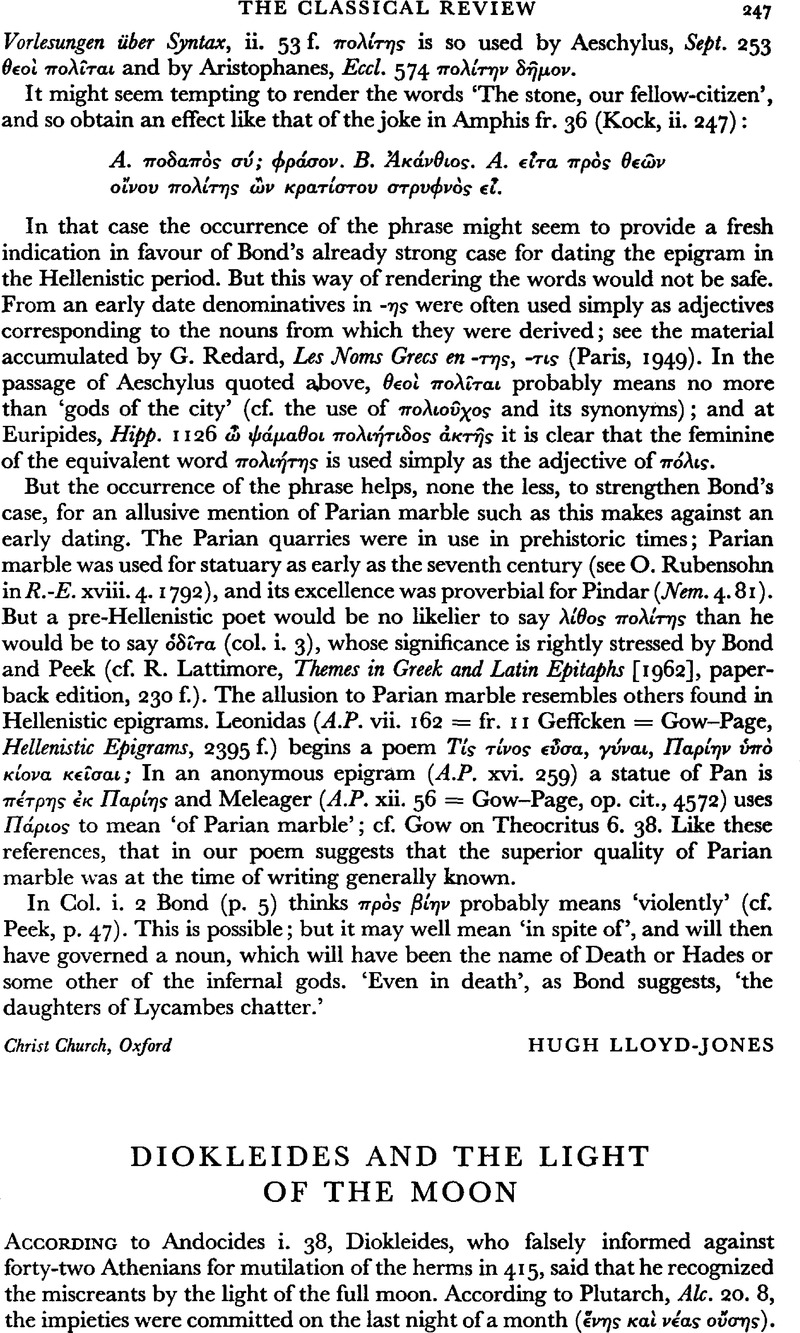No CrossRef data available.
Article contents
Diokleides and the Light of the Moon
Published online by Cambridge University Press: 27 February 2009
Abstract

- Type
- Review Article
- Information
- Copyright
- Copyright © The Classical Association 1965
References
page 248 note 1 The argument advanced in this paper is the argument criticized by MacDowell (‘Some object…’). I showed him the draft of an excursus which I had written for the forthcoming continuation of Gomme's Historical Commentary on Thucydides, and he had my full permission to draw upon it and, where he disagreed, to criticize it in print. I believed at the time that publication of the Thucydides commentary would not be long delayed, but as publication before 1968 now seems unlikely I offer my view of Diokleides in isolation. I am grateful to MacDowell for compelling me to reconsider the question and formulate my argument afresh.
page 249 note 1 As on so many points; [Dem.] lviii. 67 provides an amusing example.
page 249 note 2 It is often assumed that the mutilation occurred immediately before the Sicilian Expedition was due to sail, but neither Thucy dides nor Andocides says this, or even implies it; indeed, the implication of Thuc. vi. 27. 1–28. 1∼ And. i. 11 is against it.
page 249 note 3 For similar use of anecdotes cf. Antiphon v. 69 f., Dem. xxi. 58–76.
page 250 note 1 Grote (Everyman edition), vii, p. 236 n. 1, concluded (for two of the three reasons given above) that the herms were mutilated on the night of a full moon, but his recollection of Plut. Alc. 20. 6 seems to have been faulty: ‘Plutarch's observation certainly refers to Diokleides, whose deposition (he says)… shocked all sensible people….’


